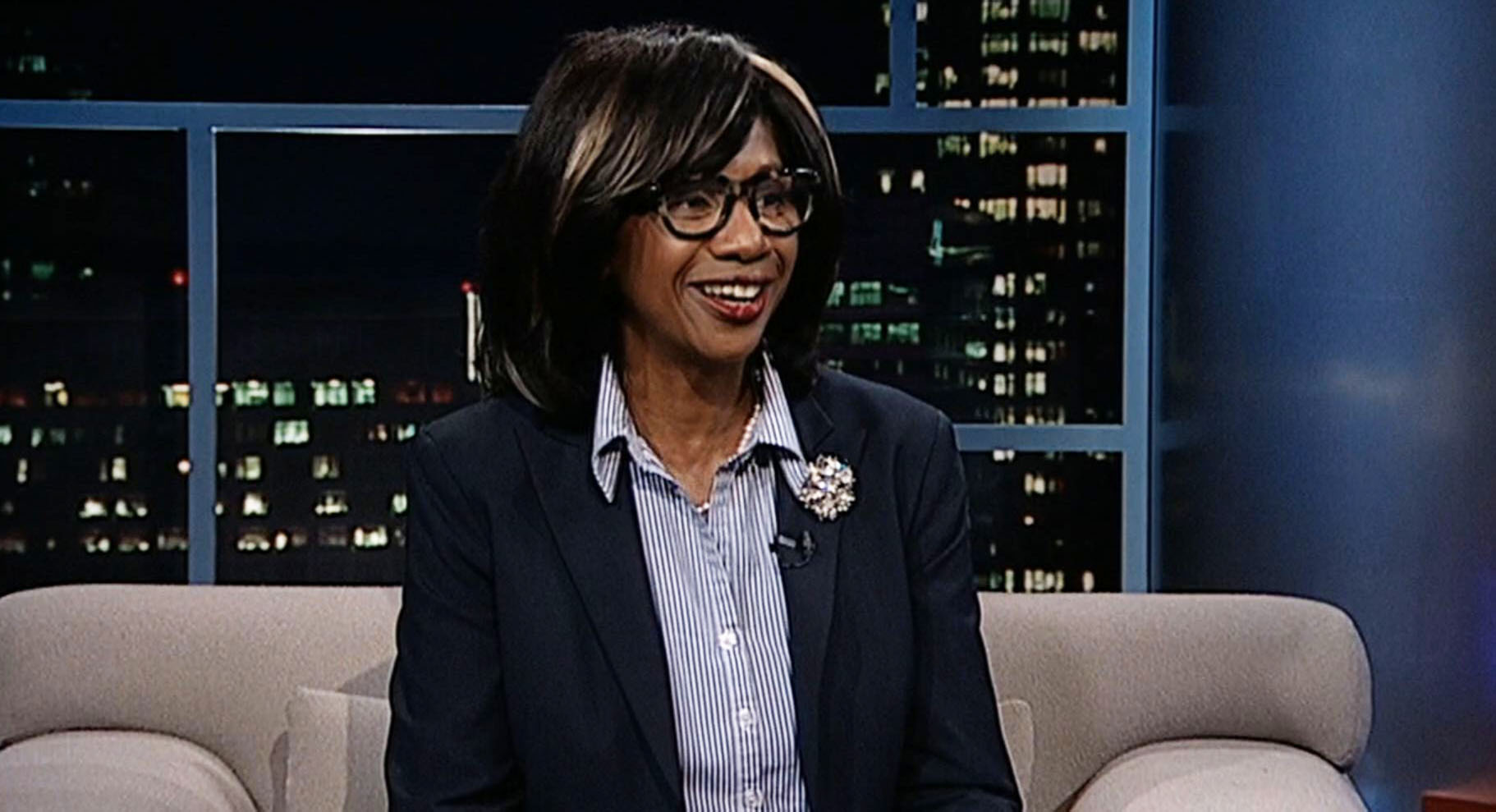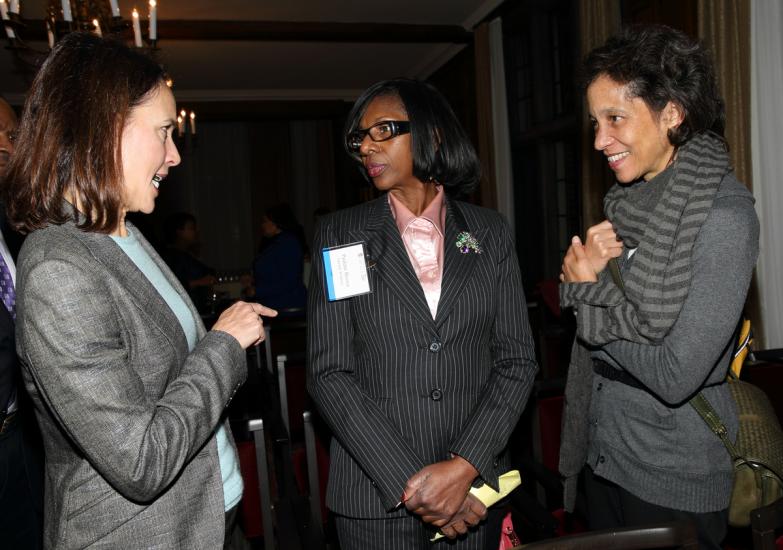Paulette Brown Makes History a First Black Woman President of ABA

Paulette Brown Makes History a First Black Woman President of American Bar Association
by Kai EL’ Zabar
When Malcolm X was a child he told his sixth grade teacher that he desired to be a lawyer. She informed him that he would never be a lawyer. Such was the case often when young Black children spoke their dreams and aspirations to white teachers. Blacks have always been given limitations by the white ruling class in America that seeps down through every level. This is just one form of racism that has been a work. So it’s of no surprise that very few African-Americans who attended prestigious law schools preserved for the white elite were not encouraged. Paulette Brown observed career counselors steering her and the other Black students toward legal service or public defender jobs assisting the poor, instead of corporate jobs in big law firms. Not to be discouraged she pursued law firms eventually serving as in-house counsel for several Fortune 500 companies.
Brown has always had a positive sense of self and her self worth. So as a partner in the Boston law firm Edwards Wildman Palmer LLP, she has fought against systematic racism, discrimination, and small slights known as “micro-inequities.” Throughout her career, she has advocated and pushed firms to hire and promote more women and minorities; mentored hundreds of lawyers, mostly women of color; and trained many others on diversity in the workplace.
Today at 63, Brown has a platform to increase the reach of her mission. In July, she became the first Black woman elected to lead the 400,000-member American Bar Association, which, prior to 1943, did not grant African-Americans membership. Earlier this year Edwards Wildman and Locke Lord merged, so Paulette is now a Partner at Locke Lord LLP where she is currently a member of the Labor & Employment Practice Group of Locke Lord.
We’ve come a long way yet only 7 percent of partners are people of color and the number of female associates has fallen for the past five years. Brown remains constant and continues raising awareness about implicit bias in law offices, the legal system, and American society.
“How is it that defendants of different races who commit the same crime get different sentences, she asked. Why are more Black and Latino children suspended from school?”
Diplomatically Brown has assessed that once an individual recognizes that its very possible that its an unconscious bias from which one operates possibility influencing your behavior. If you get to that point perhaps, “You will take a second to say, ‘Wait a minute, am I reacting this way because I could have some sort of bias in this situation?’ ” Brown said. “As a result, I think that you will be more fair in any kind of deliberation that you are engaged in.”
Born to a father who was a truck driver and a stay at home mother Paulette Brown grew up attending segregated schools in Baltimore. She was the youngest of four siblings. Her struggle to overcome the obstacles of the oppressed in order to succeed was no easy road but armed with desire, will and persistence she persevered.
Brown tells of the time when a judge kept telling her to be quiet, Brown slammed her checkbook down on the table and said, “You can fine me whatever you want, but I am talking today.” And the judge left her alone.
Brown is an old’ school mother, the type that paid attention so she observed that Dijaun, her son was not performing at his potential. So she slipped into his fifth grade class sat behind and caught him reading an Easy Rawlins mystery tucked inside his social studies textbook. Secretly Brown was happy that he was reading, but she tapped him on the should to his surprise and asked, “Why are you not paying attention?” Daijaun is now 30, and recalls the incident as a valuable lesson.
People who know Brown think of her as she is outside the court room as a warm, personable and engaging. She has an infectious personality that attracts others to her even those who oppose her legal cases.
Brown studied political science at Howard University in Washington where her self value was nurtured and strengthened her study habits which helped her earn full scholarship to law school at Seton Hall University in New Jersey. She began her career doing health and pension plan work at a steel company in Wayne, N.J., then served as in-house counsel for Prudential Insurance Co. of America and other Fortune 500 companies.
Later, she opened her own firm, focusing on employment, civil rights, and product liability law, and served as a municipal court judge. She joined Edwards Wildman as a partner in 2005.
The following year Brown helped the bar association produce a study showing that a growing number of minority women were leaving the country’s biggest law firms. Women of color make up less than 2 percent of partners nationwide; at Edwards Wildman, it is 1 percent.
In 2008, Brown was named one of the National Law Journal’s “50 Most Influential Minority Lawyers in America.”
Brown took the helm of the American Bar Association this summer. With a full plate we must wonder how she will manage to do it all. Brown, who specializes in labor and employment law, practices mainly out of the firm’s location in Morristown, N.J., although she keeps an office in Boston. As the firm’s chief diversity officer, she is required to travel around the world to Edwards Wildman’s 16 offices to conduct trainings.
When not traveling, she monitors elections in low-income communities to ensure that they are conducted fairly.
When Edwards Wildman’s suggested that she put aside her legal practice and devote herself to diversity training full-time she turned down the opportunity. Brown explains her choice to continue practicing law, “Contributing in more than one way provides you with more credibility,” she said.

Consequently Brown has little free time. Even then she puts her time to good use. She has done five 60-mile walks to raise money for breast cancer research. They aren’t competitions, but she checked the time of her last event finishing at 22nd out of 4,000 participants.
This she does and still manages to cook as a hobby and finds time to bake peach cobblers, pumpkin bread and other wonderful dishes that she has gifted her staff with.
It’s not really shocking to to discover that mentors women and that they say she has had a strong influence on their lives
During her career, Brown has successfully defended companies in discrimination cases involving sexual harassment, age, race, and wage and hour claims, while working to make her profession more diverse.
“Paulette is an outstanding lawyer and a wonderful and authentic person,” said Locke Lord Chair Jerry Clements, who introduced Paulette at a reception at the ABA Conference in Chicago this weekend. “Paulette represents her clients with great skill and integrity, and she is admired and respected by all who know her. Paulette’s commitment to diversity has made an important and critical difference to our firm.
“Locke Lord is a better place because of Paulette and I know she will continue to effect positive change within the ABA and the legal profession, as well, just as she does on a daily basis at our Firm.”
Brown said, “I look forward to leveraging the power of the nearly 400,000 ABA members to promote full and equal diversity and to end bias in the legal profession and the justice system. If we are true to our calling as lawyers, we must address this issue. Working to eliminate bias and enhance diversity and inclusion is one of the four goals of the ABA and it is critically important that the ABA increase its efforts at this time in our nation’s history.”
As part of her ABA Presidency, Brown wants to find ways to interest young people in the legal profession. This effort includes meeting with children at Boys & Girls Clubs around the country. She launched that effort during her term as President-Elect and met with children at the James Jordan Boys & Girls Club in Chicago during the ABA’s annual meeting.
This marks the third time a Locke Lord Partner has served as President of the ABA: Morris Harrell, a founding Partner of predecessor firm Rain Harrell Emery Young & Doke, led the national organization in 1982-83; and Moorfield Storey, a founding Partner of predecessor firm Palmer & Dodge, led the ABA in 1895-1896. In addition, earlier this year, Dallas Partner Frank Stevenson was voted President-Elect of the State Bar of Texas. He will serve as President of that organization for the 2016-17 year. And Dallas Partner Brad Weber is currently President of the Dallas Bar Association.
About Locke Lord LLP
Locke Lord is a full-service, international law Firm of 23 offices designed to meet clients’ needs around the world. With a combined history of more than 125 years and a greatly enhanced domestic and global footprint, Locke Lord is a worldwide leader in the middle market sector. Locke Lord advises clients across a broad spectrum of industries including energy, insurance and reinsurance, private equity, telecommunications, technology, real estate, financial services and health care and life sciences, while providing a wealth of experience through its complex litigation, regulatory, intellectual property and fund formation teams.

